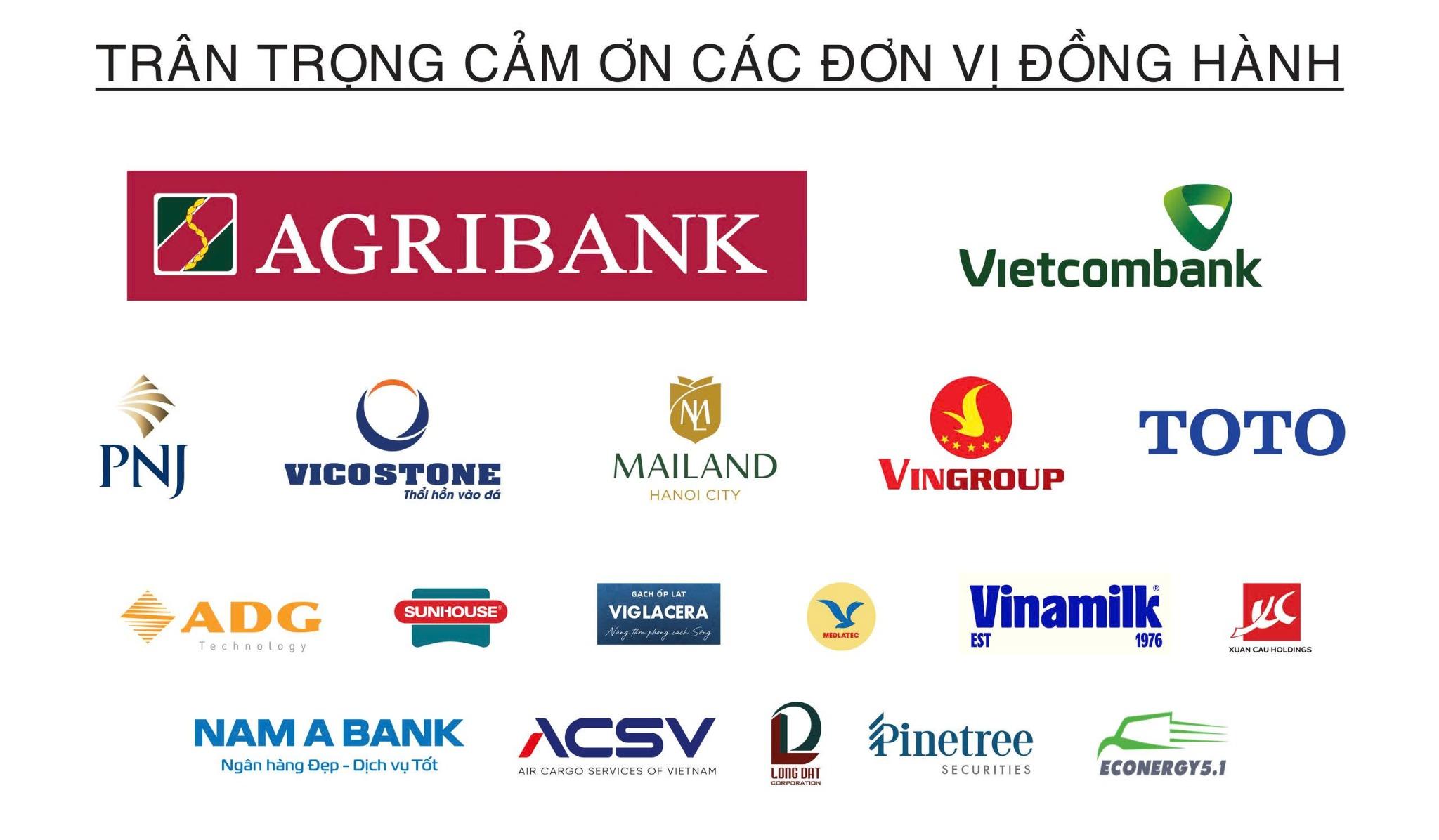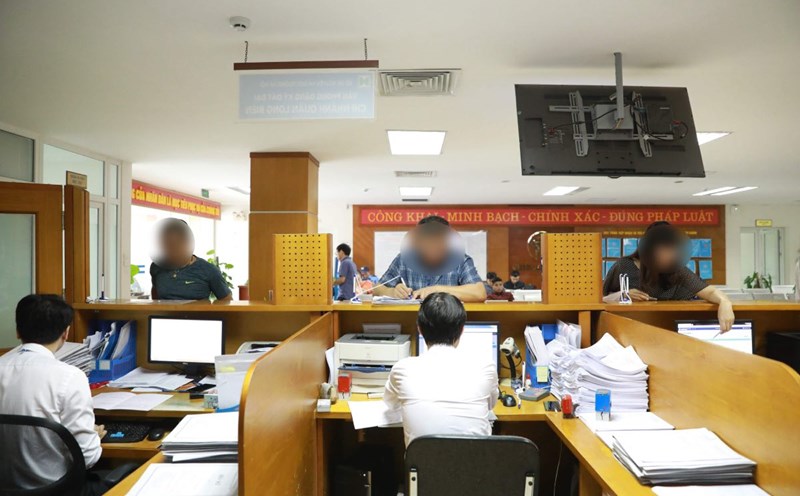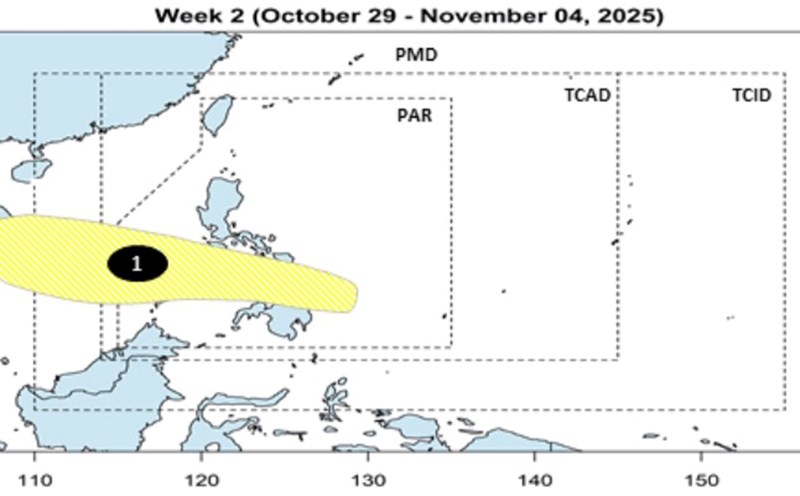In recent decades, many factors have fundamentally changed the space and methods of tax management: globalization of trade and finance, increased cross-border economic activities, the rise of the digital economy and e-commerce, along with platform business models. In the context of increasingly deep international economic integration, the tax system plays a key role in ensuring budget revenue, creating an equal business environment and promoting sustainable economic development. However, for the tax system to operate effectively, compliance with tax laws of enterprises remains the focus.
In recent times, Vietnam has made significant improvements in tax payment and refund procedures, but the level of voluntary tax compliance of enterprises is still not high compared to the region. The situation of incorrect declaration, late payment, or intentional tax evasion still occurs in many different business models. This not only causes loss of state budget revenue but also affects the competitive environment, creates legal risks and damages the reputation of the business. In that context, the concept of "capacity to comply with tax laws" is increasingly valued. This is not only the act of paying taxes on time and on time, but also includes the ability to respect the law, the ability to organize an accounting system - effective tax administration, and a positive attitude in cooperating with tax authorities. Improving this capacity becomes an urgent requirement, especially when Vietnam is strongly transforming to a "risk-based tax management" model, in which the proactiveness and self-awareness of taxpayers are the foundation.
From the above reasons, studying the current situation and solutions to improve tax law compliance capacity of enterprises not only has academic significance but also has high practical value. The results of this study are expected to contribute to the completion of modern tax management mechanisms, while promoting the culture of voluntary compliance in the Vietnamese business community.
Current status of tax law compliance of Vietnamese enterprises
In recent years, along with the strong reform of the tax management system, the level of tax compliance of Vietnamese enterprises has had many positive changes. More than 99.3% of enterprises have declared and paid taxes electronically, helping to significantly reduce costs and compliance time; the time to fulfill tax obligations has decreased to about 384 hours/year (2020) and continues the downward trend thanks to digital transformation. However, in addition to improving procedures, businesses' behavior and compliance with tax laws still have many shortcomings.
Firstly, regarding tax declaration, although almost all businesses have declared taxes electronically, the situation of incorrect, slow or inaccurate declaration is still common, especially when many businesses have not yet updated the new regulations. In 2024, the Tax sector conducted 62,932 inspections, checks, and recommendations for financial handling of about VND 62,726 billion; including many cases of collecting hundreds of billions of VND in the fields of real estate, construction, and import and export. In the field of e-commerce alone, in 2024, the tax authority handled 33,003 violations (736 businesses and 32,267 individuals), with a total of collect, collect and fine taxes of nearly VND 1,400 billion.
Second, regarding tax payment and refund, although the electronic system has created favorable conditions, the situation of tax debts and late payment is still worrying. As of March 2025, total national tax debt reached VND 219,601 billion, up 12.2% over the same period in 2024; of which more than 40% is debt that can be collected, the rest is debt that is difficult to collect due to businesses ceasing operations or being unable to pay. Some localities such as Dong Nai have applied the "green - yellow - red" traffic diversion mechanism to control risks in tax refunds, preventing the situation of taking advantage of policies for profit.
Third, regarding invoices and documents, although electronic invoices have been deployed nationwide since 2022, the behavior of buying, selling, and using illegal invoices is still complicated. In 2024, the tax authority discovered hundreds of "ghost" enterprises established for the purpose of buying and selling invoices, legalizing costs or tax refund fraud, including 113 enterprises mentioned in Official Dispatch No. 3385/TCT-TTKT (1.8.2024). Many sophisticated organizing lines, inter-regional linkages, have established hundreds of legal entities to legalize fake transactions worth thousands of billions of VND.
Fourth, in the FDI sector, the phenomenon of price shift and inaccurate loss declaration continues to be a prominent issue. In the period of 2022-2024, many FDI enterprises reported consecutive losses but still expanded their scale, increased revenue - especially in the electronic components, garment, and technical consulting industries - typical signs of profit shifting outside to erode tax bases. According to the Tax Department, in 2024 alone, the Tax sector has conducted more inspections, checks, and recommendations to handle violations, of which VND43,587 billion is the number of losses reduced after inspection. For enterprises with related transactions (FDI accounting for a large proportion), the tax authority has inspected 711 enterprises, thereby collecting, collecting and fining 1,675 billion VND; reducing losses by 8,590 billion VND; adjusting to increase taxable income by 4,983 billion VND.
Current status of tax law compliance capacity of Vietnamese enterprises
If the level of compliance reflects behavior, compliance capacity demonstrates the ability and internal conditions to help businesses fulfill their tax obligations properly. According to the Comply Risk Management (CRM) framework and the "compliance pyramid" model of OECD (2021), compliance capacity includes three groups: (i) policy understanding and updating capacity; (ii) governance - internal accounting and control capacity; (iii) ability to cooperate with tax authorities. In Vietnam, the capacity level has improved significantly thanks to digital transformation and institutional standardization, but still Differentiates strongly according to the scale and complexity of enterprises.
Firstly, in terms of tax law understanding, information access has been improved thanks to digitalization ( eTax portal, electronic invoices, public instructions), helping to access regulations faster and more evenly. However, the ability to interpret and apply is still limited, especially for SMEs. The multi-layered and constantly changing legal system makes it difficult for businesses to apply correctly. Although the PCI/VCCI survey shows an improvement in transparency, the stability and consistency in guidance is still low, causing many businesses to lack a specialized department with the capacity to monitor and unify regulations. Tax exemption, reduction and extension packages for the period 2022-2024 help support cash flow but also increase the risk of errors and compliance costs - clearly showing the group of businesses "wishing to comply but easily mistaken" according to the OECD classification.
Second, regarding governance capacity - internal control, digital transformation helps improve governance standards faster but also requires higher capacity. More than 99% of businesses have declared and paid electronic taxes and electronic invoices nationwide, creating a real-time data comparison platform. However, most SMEs still organize accounting - incident tax, depend on individuals or external services, lacking internal control framework and standardized data. When the requirement for comparison, electronic archiving or linked transaction reports increases, they have difficulty "doing the right thing from the beginning". In contrast, large enterprises, FDI and listed companies have applied the ERP system and internal tax control framework (Tax Control framework), achieving higher accuracy but also higher governance costs.
Third, in terms of cooperation capacity and trust, this is a factor reflecting the level of proactiveness, transparency and readiness to coordinate with tax authorities. Since 2022, the programs " good compliance businesses" and "Compliance cooperation" have promoted more active dialogue. Large enterprises often have a specialized tax department, a pre-declaration process and an interconnected ERP system, helping to improve explainability. Meanwhile, more than 97% of SMEs still depend on personal accounts, lack of centralized data, leading to unintentional violations. In addition to technical factors, management culture is also important: businesses that promote transparency and voluntary declarations often achieve higher compliance levels. The gap between the modern group of enterprises and the case operator group is still large, it needs to be narrowed to move towards a tax governance model based on trust.
Another side is tax ethics and compliance culture. The difference between the formal and informal sectors reduces motivation for voluntary compliance. Some FDI enterprises report long-term losses but expand their scale, showing the risk of price shift and erosion of tax bases. According to the OECD, this is a highly capable group but has a strong tax optimal engine, and needs to be managed with risk analysis tools, APA agreements and the BEPS 2.0 mechanism instead of increasing administrative procedures. On the contrary, SMEs still consider taxes as a cost that needs to be minimized, lacking a risk management perspective - requiring targeted support and guidance policies to switch to a proactive compliance model.
In general, the tax compliance capacity of Vietnamese enterprises has been significantly improved thanks to digitalization and integration with international standards. Reforms such as Decree 132/2020/ND-CP and the Global Minimum Tax Mechanism from 2024 create a more transparent foundation. However, the compliance system is still differentiated according to " Will - Capacity": large enterprises move towards proactive tax administration, while SME "want but have difficulty" due to limitations in human resources, data and policy stability.
Solutions to support improving tax law compliance for businesses
To overcome bottlenecks in awareness, organization and cooperation in tax compliance, it is necessary to deploy synchronous solutions in which environmental management agencies, intermediary organizations play the role of bridging knowledge - support, and businesses proactively build internal capacity associated with risk management.
For State management agencies
First, it is necessary to improve the stability, transparency and predictability of tax policies. The new regulations should be issued with detailed guidance documents, illustrative examples and clear transition periods, avoiding the situation of "understanding each place in a different way". The Ministry of Finance and the General Department of Taxation should maintain a centralized portal, providing "electronic consistency" for each tax color - helping taxpayers look up specific situations instead of having to read many disjointed documents. When policies are adjusted, it is necessary to announce an annual change roadmap, helping businesses proactively prepare instead of being passive in responding.
Second, improve transparency and efficiency in implementation. Tax authorities need to publicize the process and progress of processing documents, especially with tax refund and tax exemption procedures. The electronic file management system should allow businesses to track processing status in real time, with clear KPI for each step. At the same time, it is advisable to establish a Q&A portal with a mandatory response time limit, helping businesses have a legal basis when declaring, reducing the risk of being fined for misunderstanding.
Third, it is necessary to promote digital transformation and data connection between tax authorities, customs, treasury, banks and business registration agencies. Sharing this data helps reduce fraud, support more accurate risk analysis and reduce the burden of providing information to businesses. Along with that, the General Department of Taxation should develop a "standard data index" for businesses, guiding how to compare and unify tax - accounting indicators.
Fourth, it is necessary to encourage the mechanism of "self-declaration - self-revision - self-responsibility". When businesses proactively declare additional documents before inspection, tax authorities should consider exempting or reducing fines and reducing late payment interest; this helps shift the focus from " handling violations" to "supporting compliance". However, it is necessary to apply a risk classification model to focus on in-depth inspection of groups with signs of violations, instead of mass inspection - inspection causing waste of resources.
Fifth, in complex issues such as linked transactions, transfer prices, and global minimum tax, tax authorities need to develop a technical guidance manual, a unified set of questions and explanatory documents of a precedent. Having unified instructions will help both tax officials and businesses apply it equally, reducing different interpretations between localities.
Finally, it is necessary to improve the capacity and public ethics of tax officials. Implementation officers not only need to understand the policy but also be trained in support skills, consulting and resolving situations in a cooperative manner. Building a transparent assessment mechanism based on taxpayer satisfaction and applying clear professional standards will help increase the prestige of the tax industry, creating a solid foundation for cooperative relations - sustainable compliance between businesses and management agencies.
For business support agencies such as VCCI and industry associations
First, VCCI and associations need to promote their role as a bridge between the business community and tax authorities. Establishing effective policy communication channels such as electronic newsletters, legal update portals or interactive seminars helps businesses promptly grasp new regulations, reduce the risk of violations, and create a two-way feedback mechanism for policies to be closer to reality.
Second, professional associations should develop internal tax consulting capacity for members through a network of experts or cooperation with professional consulting units. Services to support declaration, establishment of joint transaction reports or tax refunds will help businesses improve compliance and reduce the burden on tax authorities, especially in industries with complex characteristics.
Third, VCCI and associations need to promote the formation of a culture of compliance through short-term training courses on tax risk management, tax management in enterprises and the "good compliance enterprise" recognition program. Honoring exemplary units publicly will create a positive spillover effect, helping to change awareness from "responsibility" to "voluntary compliance".
Fourth, VCCI needs to promote its role as a policy analyst to perfect the tax legal framework. Through a survey of the reality and synthesizing the problems of businesses, VCCI can recommend that the Ministry of Finance amend overlapping regulations, contributing to reducing legal risks and improving the transparency of the tax system.
Fifth, associations should strengthen international cooperation, learn from models of supporting businesses to comply with countries such as Singapore or South Korea. Acquiring experience in policy consulting, book standardization and accounting data governance will help shift the role of the association from "corridor operation" to "compliance development cooperation", thereby strengthening the governance foundation of the Vietnamese business sector.
For businesses
First, businesses need to build an internal tax control framework in line with the scale of operations. There needs to be a tax handling unit responsible for planning, reviewing and monitoring periodic tax declaration and payment. The compliance process should be clearly regulated from the stage of collecting documents, comparing accounting books - statements to reviewing before submission, especially for high-risk records that need to be independently inspected to limit errors.
Second, it is necessary to improve data capacity and automate tax processes. Enterprises should standardize information about product codes, tax rates, partners and documents to unify the entire system. Electronic invoices need to be configurated to warn of common errors, while connecting data between accountants, banks and warehouses to detect errors early. In the long term, it is advisable to invest in integrated management software with a tax risk warning function, making compliance more proactive.
Third, human development and compliance culture are core factors. The accounting and tax department needs to be regularly trained in policies and declaration procedures. Business leaders need to monitor compliance with effective indicators such as error rate or processing time, while encouraging the spirit of transparency - proactively asking and saving replies from tax authorities instead of handling them based on personal experience.
Fourth, businesses need to increase access to information and cooperation with tax authorities. Participating in dialogues, seminars or consultations with experts helps update policies, reduce the risk of violations and build trust with management agencies.
Finally, business leaders need to consider tax as part of strategic governance, seriously investing in systems, human resources and technology. When the mindset of " proactive adherence" is based on the leader, compliance capacity will be sustainably strengthened, contributing to enhancing the reputation and transparency of the business.












